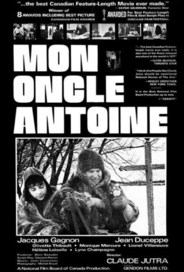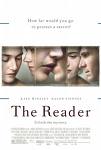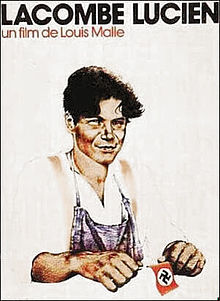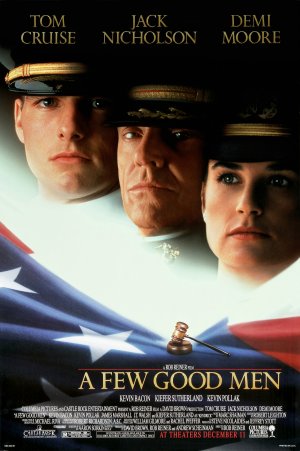A director makes some noise about male-female perceptions in ‘Anatomy of a Fall’
Some movies risk giving so much away in the title. “Anatomy of a Fall” would be one of them. For well more than two hours, it leads us on a fact-finding mission to uncover what caused a devastating event. By the end, it seems, maybe the truth was right in front of us.
Or maybe not. Pay attention to the differences in how male and female characters react to the same information. “Anatomy” does appear to arrive, laboriously, at a conclusion, one that many viewers may not even agree with. Is its title a red herring? That may depend on which language you speak and what you determine that title to mean. While opposing characters claim to be driven by science, they spend far more time on emotional conversations. The very important outcome of the proceedings here is hardly the same validation of physics as in, say, “Oppenheimer.”
A murder trial needs little embellishment. Someone is dead; that’s drama. Someone else is fighting for their freedom and reputation; that’s drama too. But that drama is sharpest in a thriller plot such as “The Fugitive,” which traps a protagonist in a binary situation. In “Anatomy,” there is plenty of gray. Only one person knows without a doubt what happened; that person cannot resist, at times, lying. It is not the first film to suggest, maybe questionably, that defendants’ own conflicting emotions can weigh heavier on them than the legal system does (such as, Kate Winslet in “The Reader”), but this film’s casual approach to the courtroom and complete indifference to incarceration deprive it of a dramatic sense of urgency. Gradually, the revelations that somehow no one brought up when the police came to conduct interviews get more and more tedious, and the difference-maker will feel a little artificial.
Probably few if any legal opinions are disputed more than suicide. It is heartbreaking. Relatives often refuse to believe it. Some people do leave a note or other evidence, but then the authenticity of the note may be challenged. Of all the reasons people die, it is among the saddest, and it seems the most preventable. It also creates problems on multiple levels for the people who are close to the victim, something that may be underestimated by the “Anatomy” director.
“Anatomy” won the Palme d’Or at Cannes, an enormous directorial accomplishment. It is the work of rising French director/writer Justine Triet, 45, who resembles the protagonist Sandra and could star in her own movie. This is her first film since 2019’s “Sibyl,” starring Virginie Efira and Adèle Exarchopoulos. Britain’s Guardian asserts that “Anatomy” puts the protagonist “manifestly on trial as a woman, a mother and a partner, as much as a murder suspect.” Triet agrees: “When they can’t find enough evidence against her, they look at her lifestyle.”
Snow is not used in movies nearly like rain. Rain is quick, here today/gone tomorrow, often necessary just when things are about to go wrong. Snow is typically there for the duration. It generally conveys the remoteness or bleakness or danger of the area (“Mon Once Antoine” or “McCabe & Mrs. Miller” or “The Thing”) but can also signify nature’s beauty (“Jeremiah Johnson”), challenge (“Downhill Racer”) or even madness (“The Shining,” “Affliction”). Like Ruben Östlund’s “Force Majeure” of 2014, “Anatomy” involves marital revelations in a winter setting. The films aren’t really very similar, but the snow gives each a sense of coziness, maybe too much coziness, as if the characters have had maybe a little too much of each other.
One of the first questions any filmmaker has about a concept is, What are we going to show. “Anatomy” gives itself some serious limitations. It refuses to show the two significant events, one current and one in the past, that led to this unfolding drama. Its characters — like so many high-minded films, astonishingly — are writers, so viewers are unable to witness their work and must interpret how successful they are by the cars that they drive and the homes where they live and the wine that they drink at their dinner parties. Vomit gradually plays a bigger role in the proceedings. (Yes.) There are two venues, a rural home and an often-empty courtroom, and for the majority of the movie, characters are simply speaking to lawyers. The camera will roam around the courtroom to break up the “Law & Order” visual monotony, but it’s far more fascinated by the one-note prosecutor and the stoic judge than in the reactions from jurors. There are attempts to spice up the action with a few curious press conferences that include articulate give and take; in typical press conferences, it’s hard to get off a clean question, and a lot of answers tend to be yes or no.
In American courtroom dramas, technicalities and legal gotchas are the order of the day. “Strenuously object,” as in “A Few Good Men,” sure. Foreign courts, in the cinema, are far more forthcoming, where cases are practically held like family arguments, Asghar Farhadi’s “A Hero” a recent example. Take the Fifth? You’ve gotta be kidding. The defendant in “Anatomy” freely speaks to the court, never requiring a nod from counsel first. This court system even allocates a person of unknown qualification, indefinitely it seems, to stay at a young witness’ home, to somehow make sure his mother doesn’t speak to him too much. It risks making these proceedings seem not totally serious. But there is something very refreshing about the informality that makes us think we really will arrive not at verdict, but truth.
Given that the film is set in Europe, implications of xenophobia may be lost on many American viewers. Or maybe, because of the limited visuals, the movie fails to give it enough air and underestimates it. The couple may appear to be French, but Sandra will explain several times that she is German, and this tragedy occurred not in Germany but in France, on her husband Samuel’s home turf. She is the outsider. That may be the reason she is charged. The prosecutor appears to be educated but not particularly bright and a far right bully.
In “Anatomy” and “A Few Good Men,” a death has occurred (mostly) offscreen, and the lawyers will try to piece together truth. The businesslike prosecutors in each case will narrow their focus to the easiest target. And in each, the suspects will vigorously protest their innocence while harboring something on their conscience.
“Anatomy” excels at language barriers like very few films. It seems more than half of the film is in English, but a considerable amount is in French with subtitles. The movie glides beautifully along with these transitions, sometimes in rapid fire, and the dialogue is never difficult to follow. It can be inferred from “Anatomy” that the less local and more international our lives become, things like emotions get sacrificed, to the point that we miss things, very important things.
The depiction of the beleaguered Sandra Voyter will have you thinking “Cate Blanchett” through the end of “Anatomy,” but it’s not Blanchett, it’s Sandra Hüller, an acclaimed European actress. Her most interesting scene is in the opening, where she directs an awkward and curiously ambiguous interview that is short-circuited by an offscreen character in extremely passive-aggressive fashion who turns up a song, “P.I.M.P.,” by 50 Cent that oddly proves catchy. If by the end of the film you do not remember the reason for the interview, that is a negative. One of the prosecutorial arguments involving the gender of the interviewer doesn’t seem to make any sense and almost comes across as a “Dating Game” sideshow.
Sandra’s chief defender, Vincent Renzi, her confidant, plays a strangely detached role. He takes the case presumably because he is her friend but also, according to some of his comments, perhaps because he believes her to be a wealthy client, only to discover they are a family with debt. Renzi, played by French actor Swann Arlaud, is perhaps dashing and diligent, but there’s something about him; he physically resembles Andy Robinson’s Killer in “Dirty Harry” and throughout the film, he seems like he may be up to something. The most impressive lawyer on Sandra’s team is Nour Boudaoud, a woman who will make limited and successful arguments without theatrics and seems most appreciated by the judge. She is the one tasked with the bail request.
In the 2010 movie “Rabbit Hole,” a boy is fatally struck by a car and the people connected to him deal with grief and guilt. In “Anatomy,” the victim is alive and non-judgmental and seemingly enjoying life. There is a strong implication in this film that a feeling of guilt creates a fuse that’s manageable in everyday life but, once accompanied by additional stresses, can be a tinderbox for a person quietly driven to punish himself.
The boy is what Roger Ebert would call the Reliable Observer. That is the term Ebert would use for a character whose impartial observations guide the audience. But the boy literally is thrust into that role as the person who discovered the body and perhaps heard something beforehand ... and perhaps knows other things about the decedent that may factor into this case. If Daniel in court sounds more like a 50-year-old philosopher than an 11-year-old boy, well, that’s how movies work.
When couples fight in movies, it can be tedious viewing. Yet almost everyone is holding something back, and it can be effective, even devastating (think “Ordinary People”), when characters visibly struggle to decide which opinions can no longer be left unsaid. “Anatomy” does not come up with much in the way of originality here. This couple fights over the definition of an affair, not having enough sex, having to move on account of the other, career frustration. “Anatomy” flirts with giving us a recurring movie problem — the couple that doesn’t really seem like a couple.
Some movies making a feminist statement are more obvious than others. It seems “Anatomy” is presenting us with two equivalent characters with a similar assortment of problems and may be telling us, “One of these people is getting a raw deal; the other is a quitter.” The culprit is not the prosecutor but the system, if not the mindset.
Was Samuel attempting to frame Sandra? So angry at Sandra that he’d leave his son without a father? This is a strange way to take one’s own life; he’s equally if not more likely to end up paralyzed. That is what becomes the strongest conclusion from “Anatomy”: However much evidence, however many experts, this type of tragedy often can’t be explained.
3 stars
(November 2023)
“Anatomy of a Fall” (2023)
Starring
Sandra Hüller
as Sandra Voyter
♦
Swann Arlaud
as Maître Vincent Renzi
♦
Milo Machado Graner
as Daniel
♦
Antoine Reinartz
as Avocat général
♦
Samuel Theis
as Samuel Maleski
♦
Jehnny Beth
as Marge Berger
♦
Saadia Bentaïeb
as Maître Nour Boudaoud
♦
Camille Rutherford
as Zoé Solidor
♦
Anne Rotger
as Présidente du tribunal
♦
Sophie Fillières
as Monica
♦
Messi
as Le chien
♦
Julien Comte
as Légiste
♦
Pierre-François Garel
as Juge Janvier
♦
Savannah Rol
as Gendarme / Sandra
♦
Ilies Kadri
as Gendarme / Samuel
♦
Vincent Courcelle-Labrousse
as Procureur
♦
Cécile Brunet-Ludet
as Juge Bollène
♦
Nesrine Slaoui
as Journaliste BFM
♦
Antoine Bueno
as Expert Balard
♦
Anne-Lise Heimburger
as Experte Bogaert
♦
Wajdi Mouawad
as Psy Jammal
♦
Sacha Wolff
as Chef d’enquête
♦
Kareen Guiock
as Présentatrice TV
♦
Arthur Harari
as Critique littéraire
♦
Marie Brette
as Journaliste
♦
Christophe Devaux
as Journaliste
♦
Jefferson Desport
as Journaliste
♦
Nola Jolly
as Avocate associée
♦
Emmanuelle Jourdan
as Traductrice tribunal
♦
Isaak Abdallah as Le Tribunal
♦
Judicaël Ajorque
as Le Tribunal
♦
Nicholas Angelo
as Le Tribunal
♦
Marie-Laure Aumis
as Le Tribunal
♦
Laura Balasuriya
as Le Tribunal
♦
Alexandre Bertrand
as Le Tribunal
♦
Jean-Pierre Bertrand
as Le Tribunal
♦
Cecilia Bongiovanni-Lefebvre
as Le Tribunal
♦
Jean-Claude Calbet
as Le Tribunal
♦
Florent Chasseloup
as Le Tribunal
♦
Sandrine Chastagnol
as Le Tribunal
♦
Betty Desmier
as Le Tribunal
♦
Justine Dulary
as Le Tribunal
♦
Philippe Jubien
as Le Tribunal
♦
Cyril Karenine
as Le Tribunal
♦
Maud Martin
as Le Tribunal
♦
Romaric Maucoeur
as Le Tribunal
♦
Fabien Perrot
as Le Tribunal
♦
Christophe Leon Schelstraete as Le Tribunal
♦
Rose Thibault
as Le Tribunal
Directed by: Justine Triet
Written by: Justine Triet
Written by: Arthur Harari
Producer: Marie-Ange Luciani
Producer: David Thion
Associate producer: Philippe Martin
Cinematography: Simon Beaufils
Editing: Laurent Sénéchal
Casting: Cynthia Arra
Production design: Emmanuelle Duplay
Set decoration: Cécile Deleu
Costume design: Isabelle Pannetier
Makeup: Aurélie Cerveau, Olivier Afonso
Production manager: Julien Flick
Unit production manager: Benjamin Goumard
Administrateur: Antoine Lepetit
Assistant production manager: Jennifer Limam
Post-production supervisor: Juliette Mallon
Stunts: Alexandre Cauderlier, Clément Huet



